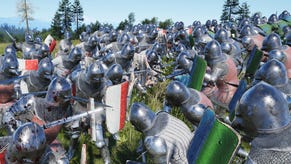Ofcom slaps ITV over Arma 2 Gaddafi gaffe
A "significant breach of audience trust".
Broadcasting standards agency Ofcom has slammed ITV for mistakenly labelling a clip of video game Arma 2 as real-life footage of a Libya-funded IRA attack.
ITV included the YouTube video of tactical shooter Arma 2 in a documentary on the now-deposed Libyan dictator Muammar Gaddafi, shown in September last year.
The mistake constituted a "significant breach of audience trust," Ofcom ruled, "particularly in the context of a public service broadcaster."
"It is not sufficient for a broadcaster or programme maker to rely on footage provided by a third-party source, on the basis that that source had previously supplied other broadcasters with archive footage, and fail to confirm the details of archive film provided," Ofcom's statement reads (as reported by Tech Radar).
"The viewers of this serious current affairs programme were misled as to the nature of the material they were watching. In the circumstances, this represented a significant breach of audience trust, particularly in the context of a public service broadcaster.
"As such, Ofcom considered the programme to be materially misleading, in breach of Rule 2.2. Ofcom was particularly concerned by this compliance failure by ITV."
But Ofcom appeared to rule out any form of penalty for the broadcaster, simply concluding: "We do not expect any issues of a similar nature to arise in future."
At the time, ITV blamed the mistake on "an unfortunate case of human error". The broadcaster apologised, but not before Ofcom had received a number of complaints.
Arma developer Bohemia Interactive told Eurogamer it did not expect the controversy to affect sales of the game, and confirmed forthcoming sequel Arma 3 will make no mention or Libya or Gaddafi.









